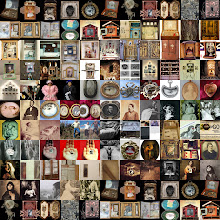Saudade differs from nostalgia in that whereas nostalgia involves a mixed happy and sad feeling for the lost memories, saudade involves the hope that what is being longed for might return. Saudade has been described as a "vague and constant desire for something that does not and probably cannot exist ... a turning towards the past or towards the future". A stronger form of saudade may be felt towards people and things whose whereabouts are unknown, such as a lost lover, or a family member who has gone missing.
Saudade was once described as "the love that remains" or "the love that stays" after someone is gone. Saudade is the recollection of feelings, experiences, places or events that once brought excitment, pleasure, well-being, which now triggers the senses and makes one live again.
Origins
Some specialists say the word may have originated during the Great Portuguese Discoveries, giving meaning to the sadness felt about those who departed on journeys to unknown seas and disappeared in shipwrecks, died in battle, or simply never returned. Those who stayed behind—mostly women and children—suffered deeply in their absence; the state of mind has subsequently become a "Portuguese way of life": a constant feeling of absence, the sadness of something that's missing, wishful longing for completeness or wholeness and the yearning for the return of that now gone, a desire for presence as opposed to absence—as it is said in Portuguese, a strong desire to "matar as saudades" (lit. to kill the saudades).
The same feeling is also found in Brazil, the destination of immigrants and African slaves who never saw their homelands again. (...) Another permanent source of saudades for the Brazilians is the vastness of the country itself, which in the past caused most people to feel alone almost everywhere.
In the latter half of the 20th century, saudade became associated with the feeling of longing for one's homeland, as hundreds of thousands of Portuguese-speaking people left in search of better futures in North America and Western Europe. Besides the implications derived from an emigratory trend from the motherland, saudade is historically speaking the term meant to describe the decline of Portugal's role in world politics and power. During the so called 'Golden Age', synonymous with the Era of discoveries, Portugal had undeniably risen to the status of a world power, its monarchy one of the richest in Europe at the time. Since then, with the rise of competition from other European nations, the country went both colonially and economically into a prolonged period of decay. This period of decline and resignation from the world's cultural stage marked the rise of saudade, aptly described by a sentence of its national anthem - 'Levantai hoje de novo o esplendor de Portugal' (Let us once again lift up the splendour of Portugal).
Distinctions
Saudade is different from nostalgia; in nostalgia (a word that also exists in Portuguese), one has a mixed happy and sad feeling, a memory of happiness but a sadness for its impossible return and sole existence in the past. Saudade is like nostalgia but with the hope that what is being longed for might return, even if that return is unlikely or so distant in the future to be almost of no consequence to the present. One might make a strong analogy with nostalgia as a feeling one has for a loved one who has died and saudade as a feeling one has for a loved one who has disappeared or is simply currently absent. Nostalgia is located in the past and is somewhat conformist while saudade is very present, anguishing, anxious and extends into the future.
A stronger form of saudade may be felt towards people and things whose whereabouts are unknown, such as old ways and sayings; a lost lover who is sadly missed; a faraway place where one was raised; loved ones who have passed away; feelings and stimuli one used to have; and the faded, yet golden memories of youth. Although it relates to feelings of melancholy and fond memories of things/people/days gone by, it can be a rush of sadness coupled with a paradoxical joy derived from acceptance of fate and the hope of recovering or substituting what is lost by something that will either fill in the void or provide consolation.
Although the word is Portuguese in origin, saudade is a universal feeling related to love. It occurs when two people are in love, but apart from each other. Saudade occurs when we think of a person who we love and we are happy about having that feeling while we are thinking of that person, but he/she is out of reach, making us sad and crushing our hearts. The pain and these mixed feelings are named "saudade". It is also used to refer to the feeling of being far from people one does love, e.g., one's sister, father, grandparents, friends; it can be applied to places or pets one misses, things one used to do in childhood, or other activities performed in the past.
What sets saudade apart is that it can be directed to anything that is personal and moving. It can also be felt for unrequited love in that the person misses something he or she never really had, but for which might hope, regardless of the possible futility of said hope.
(wikipedia)
 Portada de un disco de 1979.
Portada de un disco de 1979.


